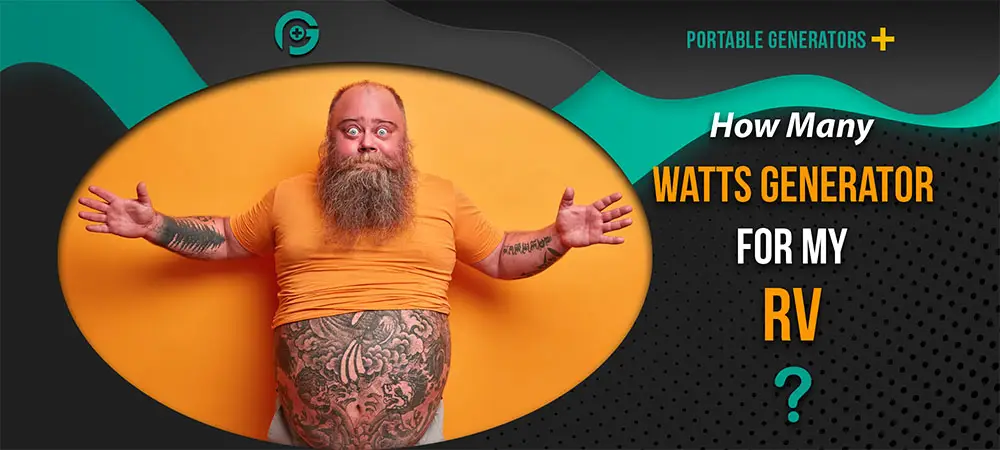How Many Watt Generator For RV? - Quick Answer...
At the very least, a 2,500-watt generator should suffice to run your RV’s smaller appliances, such as the microwave, blender, and coffee maker, as well as gadgets like laptops and gaming consoles.
However, for powering bigger appliances, especially the A/C, you’d be much better off with a 4,000-watt generator.
Introduction
Question: How Many Watt Generator For RV?
Planning to go on a memorable road trip in your RV? One crucial item you’ll need to consider is the right wattage for your generator. A common question that arises is “How many watt generator for RV?”
The answer depends on various factors, such as the appliances you’ll be using and the size of your RV. In this article, we will explore different methods to determine the appropriate wattage for your RV generator, ensuring you have a stress-free and enjoyable journey.
Factors to Consider
Size and Power Needs of Your RV
When choosing a generator for your RV, it’s crucial to consider the size and power requirements of your vehicle. RVs come in different sizes, ranging from small campers to large motorhomes.
The larger the RV, the more power it will likely need to run all its appliances and equipment. Make sure to check the power needs specified by the manufacturer of your RV to determine the wattage necessary for your generator.
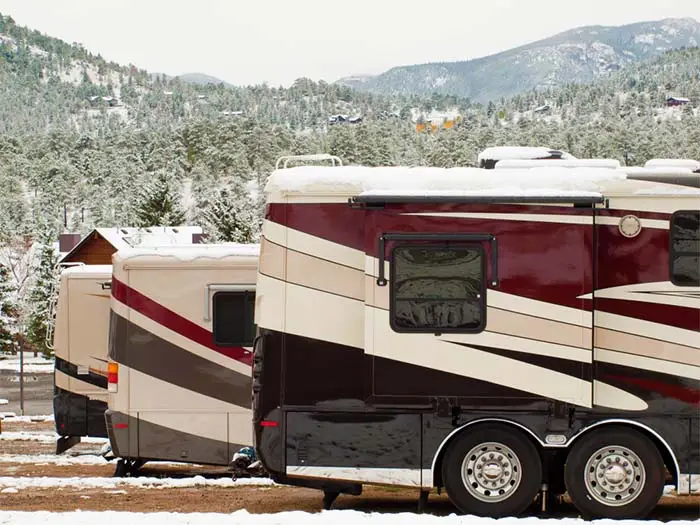
NOTE: We know the question “How Many Watt Generator For RV?” is seriously badly written, but it is the way the question is commonly searched for. To show up as an answer in the search engines we have to quote the question as asked. Cheers.
Type of Appliances and Equipment Required
The types of appliances and equipment you plan to use in your RV are important factors to consider when selecting a generator. Some common appliances found in RVs include air conditioners, microwaves, refrigerators, water pumps, and TVs. Each of these appliances has specific power requirements, so it’s essential to calculate the total wattage needed to run them simultaneously.
Frequency of Generator Usage
How often you plan to use your generator also influences your choice. If you only plan to use it occasionally, a smaller generator may be sufficient. However, if you are a frequent traveler or rely heavily on your generator for power, a larger generator with higher wattage capability may be more suitable.
Calculating Power Requirements
Determining the Starting Wattage
The starting wattage refers to the initial surge of power required to start certain appliances or equipment. Appliances like air conditioners and microwaves often require a higher wattage when starting up compared to their running wattage. Consult the manufacturer’s specifications or the appliance labels to determine the starting wattage of each item you plan to power with your generator.
Determining the Running Wattage
The running wattage is the continuous power required to keep an appliance or equipment running smoothly once it has started. This value is typically lower than the starting wattage. Again, refer to the manufacturer’s specifications or labels to calculate the running wattage for each appliance or equipment you plan to use.
Considering Multiple Appliances
When determining your power requirements, remember to account for the simultaneous use of multiple appliances. Calculate the combined starting and running wattages of all the appliances and equipment you plan to run concurrently to ensure your generator can handle the load.
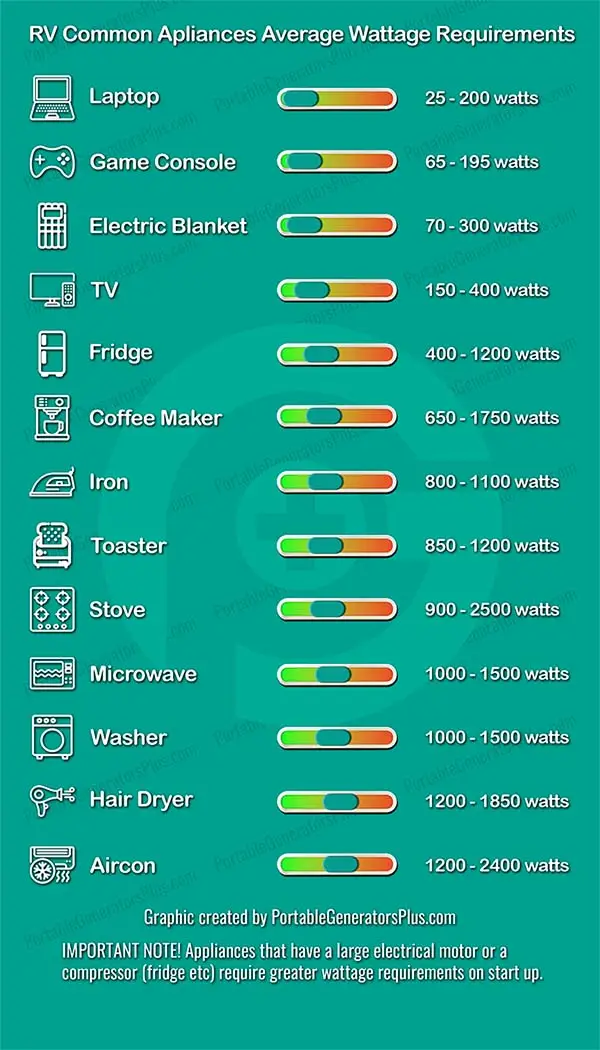
Different RV Generator Sizes
1000-2000 Watt Generators
If you have a small camper or only need to power a few basic appliances, a 1000-2000 watt generator may be sufficient. These generators are compact, lightweight, and portable, making them ideal for those who prioritize ease of transportation.
3000-4000 Watt Generators
For medium-sized RVs or those with moderate power needs, a 3000-4000 watt generator is a popular choice. These generators offer more power and can handle a wider range of appliances and equipment, including air conditioners and refrigerators.
5000-6500 Watt Generators
When it comes to larger RVs or those with higher power demands, a 5000-6500 watt generator is recommended. These generators can handle multiple appliances simultaneously, including larger air conditioning units, microwaves, and other power-hungry devices.
7000+ Watt Generators
If you have a large motorhome or require significant power for your RV, a generator with 7000+ watts is your best bet. These generators offer robust power capabilities and can handle multiple high-wattage appliances at the same time.
Common Appliances and Required Wattage
Air Conditioner
Air conditioners are one of the most power-hungry appliances in RVs. Smaller portable air conditioners typically require around 1000-2000 watts to start and 600-1500 watts to run continuously. Larger rooftop air conditioners can require up to 3000 watts or more to start and 1500-2000 watts to run.
Microwave
Microwaves come in various sizes and power levels. On average, smaller microwaves require around 600-800 watts to start and 500-700 watts to run. Larger and more powerful microwaves may require up to 1500 watts to start and 1000-1200 watts to run.
Refrigerator
RV refrigerators vary in power consumption depending on factors such as size, age, and energy efficiency rating. On average, a refrigerator can require around 600-800 watts to start and 100-400 watts to run, although larger residential-style refrigerators may consume more power.
Water Pump
Water pumps are typically low-power devices, requiring around 100-200 watts to start and 40-100 watts to run. However, it’s essential to consider the pump’s pressure and flow capacity to determine its power requirements accurately.
TV and Electronics
TVs, laptops, smartphones, and other electronics have relatively low power requirements compared to other appliances. On average, a TV may require around 100-300 watts to start and 50-150 watts to run, depending on screen size and technology.
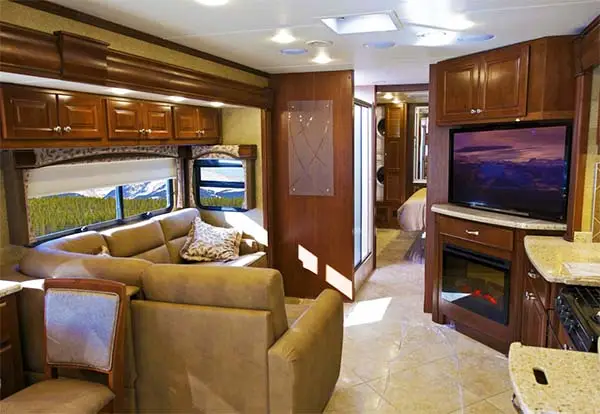
NOTE: We know the question “How Many Watt Generator For RV?” is seriously badly written, but it is the way the question is commonly searched for. To show up as an answer in the search engines we have to quote the question as asked. Cheers.
Tips for Selecting the Right Generator
Portability and Weight
Consider how portable and lightweight you need your generator to be. If you frequently move or have limited storage space, a compact and lightweight generator will be more practical.
Noise Level
RV camping often involves enjoying the serenity of nature, so selecting a generator with a low noise level is crucial. Look for generators specifically designed to run quietly, as these will enhance your overall camping experience.
Fuel Type
Generators can run on various fuel types, including gasoline, propane, and diesel. Consider the availability and ease of obtaining the fuel type that suits your needs best. Propane, for example, is often available at many campgrounds and may be more convenient for RV owners.
Runtime and Fuel Efficiency
Consider the runtime and fuel efficiency of the generator. A longer runtime will require fewer fuel stops, while greater fuel efficiency will lead to cost savings in the long run.
Safety Features
Ensure your generator has built-in safety features such as automatic shut-off mechanisms, overload protection, and low-oil shutoff. These features will help prevent accidents and protect both you and your generator.
Budget and Cost
Set a budget for your RV generator purchase and consider the cost of the generator, maintenance, and fuel expenses. Finding a balance between price and performance is crucial when making your decision.
Inverter Generators vs. Conventional Generators
Inverter Generators
Inverter generators are known for their lightweight design, quiet operation, and clean power output. They use advanced technology to produce a consistent and reliable power supply for sensitive electronics. While typically more expensive than conventional generators, they offer benefits like fuel efficiency and reduced noise levels.
Conventional Generators
Conventional generators are often more affordable than inverter generators and come in a wide range of sizes and power capacities. They provide reliable power for larger appliances and equipment but tend to be noisier and less fuel-efficient compared to inverter generators.
Parallel Generators
What are Parallel Generators?
Parallel generators allow you to connect two generators of the same model and capacity to double your power output. This feature is beneficial when you need extra power for specific situations but don’t want to invest in a larger generator. It provides flexibility and scalability in meeting your power needs.
Advantages and Disadvantages
The primary advantage of parallel generators is the ability to increase power output without the need for a single, larger generator. This can be cost-effective and easier to transport compared to a larger generator. However, it requires the purchase of two generators and the necessary parallel kit. Additionally, maintenance and synchronization of two generators may be more complex.
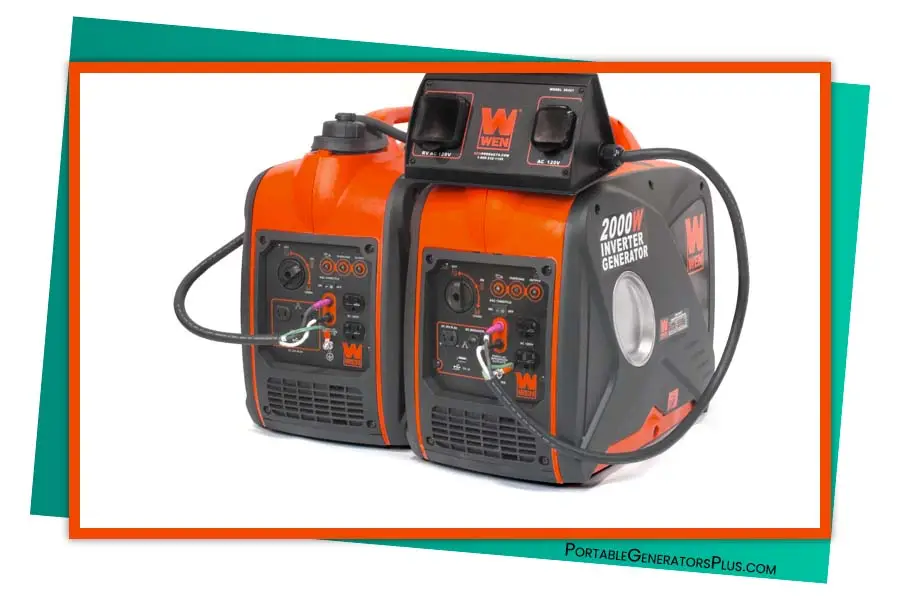
NOTE: We know the question “How Many Watt Generator For RV?” is seriously badly written, but it is the way the question is commonly searched for. To show up as an answer in the search engines we have to quote the question as asked. Cheers.
Maintenance and Care
Regular Checks and Inspections
Perform regular checks and inspections on your generator to ensure it is in good working condition. Look for any signs of wear or damage and address them promptly. Check the fuel and oil levels, battery, and all electrical connections regularly.
Oil Changes
Follow the manufacturer’s recommendations for oil changes, typically every 100 hours of operation or once a year, whichever comes first. Regular oil changes help maintain the generator’s performance and extend its lifespan.
Air Filter Cleaning
Clean or replace the air filter according to the manufacturer’s instructions. A clogged air filter can hinder performance and increase fuel consumption.
Spark Plug Replacement
Periodically inspect and replace the spark plug as needed. A worn-out spark plug can affect the generator’s starting and running capabilities.
Storage and Winterizing
If you plan to store your generator for an extended period or during the winter months, follow the manufacturer’s instructions for proper storage and winterizing procedures. This typically involves draining the fuel, running the generator until it is out of fuel, and storing it in a clean, dry location.
Conclusion
Selecting the right generator for your RV requires careful consideration of factors such as size and power needs, types of appliances, and the frequency of generator usage.
By calculating your power requirements, understanding different generator sizes, and keeping in mind essential tips and considerations, you can make an informed decision. Whether you opt for a compact inverter generator or a robust conventional generator, regular maintenance and care will help ensure optimal performance and longevity.
Enjoy your RV adventures, knowing your generator provides the power you need to make your travels comfortable and convenient.
Hope this was helpful, and thanks for reading.
Cheers!

